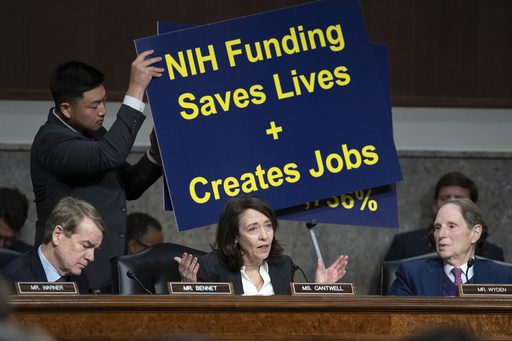
WASHINGTON — On Thursday, Robert F. Kennedy Jr. received confirmation to serve as the Secretary of Health and Human Services under President Donald Trump, where he will oversee a substantial budget of $1.7 trillion that encompasses federal spending, vaccine recommendations, food safety oversight, and health insurance programs impacting nearly half of the U.S. population.
Despite concerns from some regarding Kennedy’s stance on vaccinations, the majority of Republican senators supported Trump’s nomination, resulting in a close 52-48 vote. Democrats unanimously opposed his appointment. Among the Republicans, only Kentucky Senator Mitch McConnell cast a dissenting vote, reflecting his consistent opposition to Trump’s appointments to key positions. McConnell, a polio survivor, expressed his long-standing belief in the life-saving potential of vaccines, stating, “I will not condone the re-litigation of proven cures, and neither will millions of Americans who credit their survival and quality of life to scientific miracles.”
In contrast, many in the GOP have rallied behind Kennedy’s direction, emphasizing a renewed focus on addressing chronic health issues such as obesity. Senator Mike Crapo from Idaho commented on the necessity of revitalizing the nation’s health initiative, asserting that Kennedy would infuse the department with a “fresh perspective.” Following the confirmation, Kennedy was sworn in during an afternoon ceremony at the Oval Office, presided over by Supreme Court Justice Neil Gorsuch, in the presence of family and congressional members.
Kennedy, who has gained prominence due to his family legacy and personal tragedies, has garnered support through his outspoken views on food safety, chemicals, and vaccination practices. His influence heightened during the COVID-19 pandemic, where he led a nonprofit that challenged vaccine manufacturers and utilized social media to question public trust in vaccines and their promoting agencies.
With Trump’s endorsement, Kennedy asserted that he is “uniquely positioned” to restore confidence in significant public health organizations like the FDA, CDC, and NIH. Leading up to the vote, some senators expressed optimism about Kennedy’s potential to drive down healthcare costs and enhance the health of Americans. However, concerns were raised by Senator Bill Cassidy of Louisiana, a physician and chair of the Senate Health, Education, Labor, and Pensions Committee, who sought commitments from Kennedy not to alter existing vaccination guidelines before he would lend his support.
During the confirmation hearings, Democrats pressed Kennedy to denounce the debunked notion that vaccines lead to autism. Additional inquiries arose regarding possible personal financial gains tied to any modifications in vaccination standards, particularly as Kennedy had made over $850,000 the previous year from a referral service linked to legal battles against the manufacturers of the HPV vaccine, Gardasil. Kennedy assured that if appointed as health secretary, he would redirect any associated fees to his son.
Kennedy’s tenure will commence amid a critical reevaluation of federal government operations, which has already led to significant cuts in public health funding influenced by prominent figures like billionaire Elon Musk. This shakeup has created uncertainties for thousands of federal employees regarding their job security. Recently, the NIH announced plans to place limits on the billions allocated for medical research targeted at various diseases, including cancer and Alzheimer’s.
He has echoed calls for a complete overhaul of personnel at the NIH, FDA, and CDC, having previously committed to terminating 600 employees at the NIH—America’s principal biomedical research funding entity.

